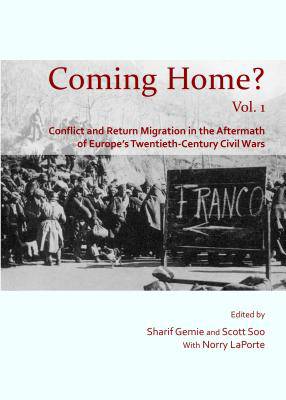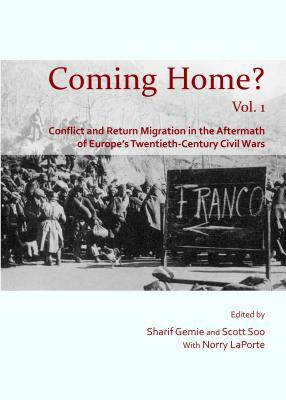
- Retrait gratuit dans votre magasin Club
- 7.000.000 titres dans notre catalogue
- Payer en toute sécurité
- Toujours un magasin près de chez vous
- Retrait gratuit dans votre magasin Club
- 7.000.0000 titres dans notre catalogue
- Payer en toute sécurité
- Toujours un magasin près de chez vous
Coming Home? Volume 1
Conflict and Return Migration in the Aftermath of Europe's Twentieth-Century Civil Wars
Scott Soo
Livre relié | Anglais
128,95 €
+ 257 points
Description
The wars of the twentieth century uprooted people on a previously unimaginable scale to the extent that being a refugee became an increasingly widespread experience. With the arrival of refugees, governments of host countries had to mediate between divided national populations: some wished to welcome those arriving in search of refuge; others preferred a strategy of exclusion or even expulsion. At the same time, refugees had to manage conflicts of the self as they responded to the loss of nationhood, families, socio-political networks, material goods, and arguably also a sense of belonging or home. While return migration was usually perceived by governments and refugees alike as the best solution to the dilemmas of forced displacement, consensus about the timing and dynamics of how this would actually occur was very difficult to achieve. In practice, the return of refugees to their countries of origin rarely, if ever, produced a wholly satisfactory outcome. Conflicts clearly resulted in forced displacement, but it is equally true that forced displacement created conflicts. The complex inter-relationship of conflict, return migration and the sometimes chimerical, but still compelling, search for a sense of home is the central preoccupation of the contributors to the two volumes of the Coming Home? series. Scholars from history, literature, cultural studies and sociology explore the tensions between nation-states and migrants as they have anticipated, implemented or challenged the process of return migration during the twentieth and twenty-first centuries. This book begins with Western Europe and progresses to Central and Eastern Europe from the period of the Spanish Civil War to the Cold War era, whilst the second volume -- Coming home? Vol. 2: Conflict and Postcolonial Return Migration in the Context of France and North Africa -- shifts the focus to the colonial and post-colonial framework of the French-North African nexus. What emerges from the two volumes of essays is that, as ambiguous and sometimes ambivalent as home could appear, it was nonetheless central to migrants' preoccupations about returning.
Spécifications
Parties prenantes
- Auteur(s) :
- Editeur:
Contenu
- Nombre de pages :
- 247
- Langue:
- Anglais
Caractéristiques
- EAN:
- 9781443850414
- Date de parution :
- 15-10-13
- Format:
- Livre relié
- Format numérique:
- Ongenaaid / garenloos gebonden
- Dimensions :
- 152 mm x 206 mm
- Poids :
- 453 g

Les avis
Nous publions uniquement les avis qui respectent les conditions requises. Consultez nos conditions pour les avis.






